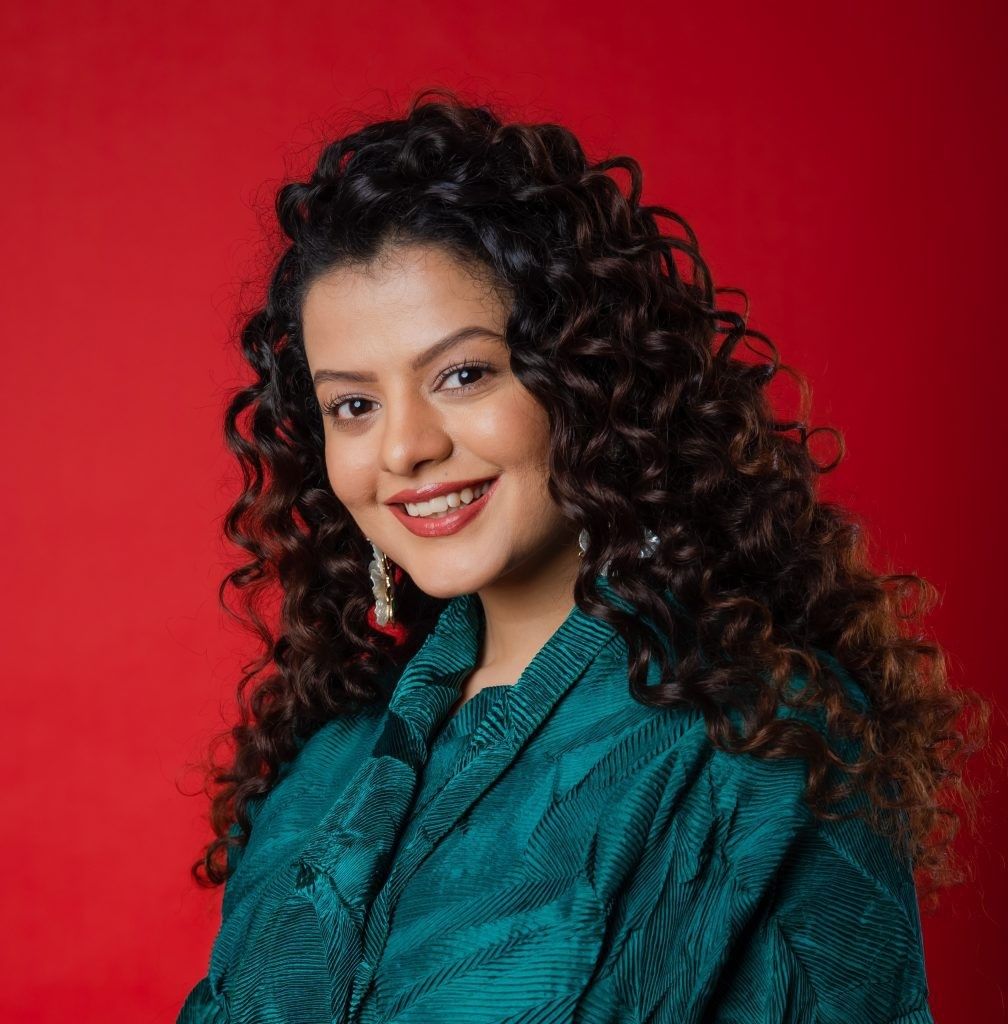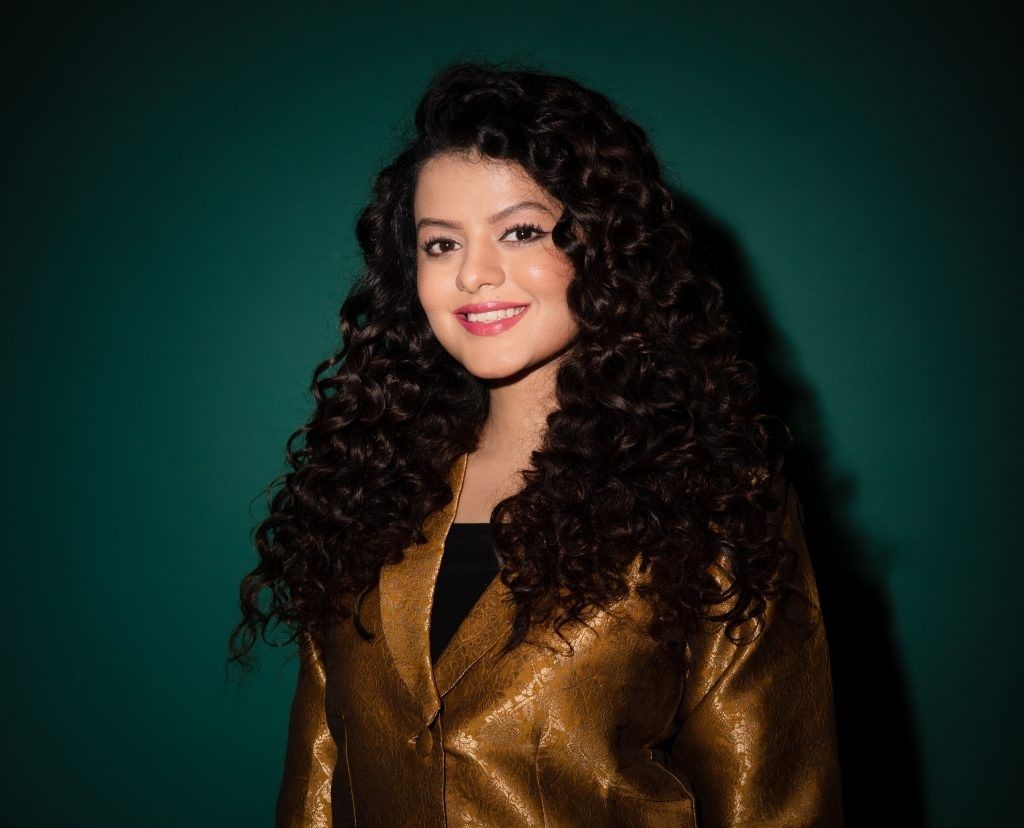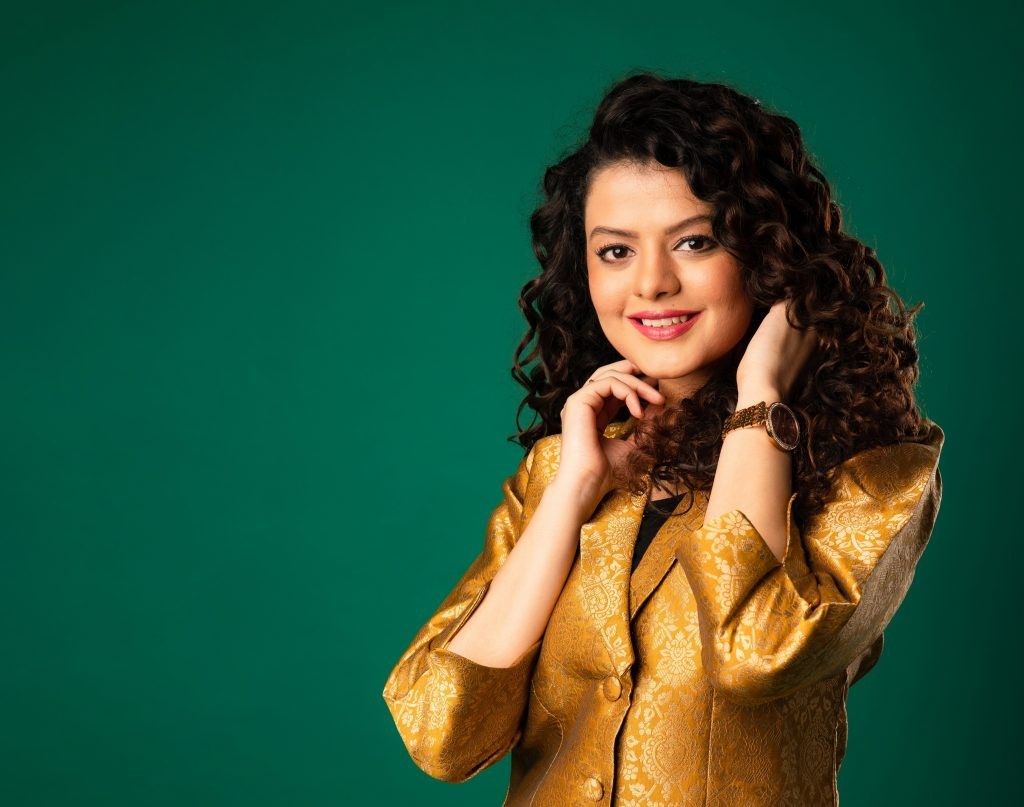AN amazing ability to do justice to every genre of music in diverse languages has enabled Palak Muchhal to become one of the most successful Indian playback singers of the past decade. Her electric mix of songs, including Laapata, Meri Aashiqui, Jumme Ki Raat, Prem Ratan Dhan Payo, and Kaun Tujhe has provided her with an impressive number of hits.
Her most recent success Naiyo Lagda, from Salman Khan’s much-awaited Eid release Kisi Ka Bhai Kisi Ki Jaan, has been met with a tidal wave of appreciation.
In a candid conversation with Eastern Eye, Palak spoke about the success of Naiyo Lagda, the journey towards establishing herself as a musical force, her biggest supporter Salman Khan, and the controversial cover version topic.
She also shared thoughts on fame and some of her favourite London memories.
How do you feel about the success of your latest song Naiyo Lagda from Kisi Ka Bhai Kisi Ki Jaan?
I am feeling great. Honestly speaking, I think this song has a very strong nostalgic vibe. It just makes you connect with some phase of your life. It makes you feel very nostalgic when you hear it. I am getting responses from every set of generations, from young to old people. People born in the 90s are especially liking this song. Yeah, for me, it’s special for personal reasons.
Does the fact it features in a Salman Khan-starrer make this even more special for you?
Yes, it’s a Salman Khan film song, and whenever I sing for his movies, it’s always special because he is the one who gave me my first break. He’s the biggest supporter I have had in my journey in the industry. And then, it’s composed by Himesh Reshammiya who has given me, so many hits in my filmography. I had a feeling this song was a very massy romantic number. When you record, you know it is going to work. So, I had this feeling, and am really happy people are connecting with it.
How did you land this song?
I was called by Himesh Reshammiya and then I was told by Salman Khan sir that it was for his movie, simultaneously. So, I think it was a joint decision by them.

You have sung several popular tracks for Salman Khan’s films. Do you always say yes to him because he launched you?
He has always been very supportive of me in my career. He has really guided me in terms of what steps to take, even in my mission of heart patients. So, wherever he tells me ‘Okay, I have planned this song for you’ I know that this will work. I know he has been thoughtful about it, and don’t doubt that. It has always worked for me. It’s not like I don’t say no. Sometimes, I do have my inhibitions.
Really, can you give us an example?
There was this song Photocopy in Jai Ho (2014) that was very high in scale. He said, ‘Okay, now you are singing this song.’ I told him, ‘Sir, that is very high in scale.’ He said, ‘No, you will pull it off.’ The conviction sir had just made me push my own limits. Even in the song Chicken Kuk-Doo-Koo from Bajrangi Bhaijaan (2015). (Laughs) I am a vegetarian, and this song had all sorts of non-vegetarian dishes included in its lyrics. Even Jumme Ki Raat was not something I was singing at that time because after Aashiqui 2 (2013) everybody was approaching me for romantic numbers. Then came Jumme Ki Raat! So, he and Himesh Reshammiya to some extent, have always pushed me. So, whenever Salman sir tells me to do something, I know he has been very thoughtful about it. And it has always worked.
You just spoke about your mission for heart patients. Please throw some light on it.
I have been running Palak Muchhal Heart Foundation for several years. So, whenever I do a concert, I have only sung for heart patients for the past 22 years. All the remuneration I get goes for the surgeries of patients who are suffering from heart disease, and so far, I have been able to sponsor 2696 surgeries. There are still 125 people on my waiting list. So that’s the mission.
Tell us something about the moment when Salman Khan gave you your first break as a playback singer.
I am from Indore and shifted to Mumbai with my family. We were prepared to go through all sorts of struggles. I had even made a demo CD to send to different composers. I had this film directory and was asking for work. I was, I think, only 13 years old. Rumi Jaffery, who is a well-known writer/director, knew me well. So, I called him and said, ‘Uncle, I am in Mumbai, let me know if there is any work’. Then on the seventh day after I came to Mumbai, he called me back and said, ‘Palak, just come to RK Studios; I want you to meet somebody.’

What happened after that?
I went to RK Studios and that somebody was Salman Khan. He already knew of my mission to help heart patients. He asked me to sing something, and I sang Lambi Judaai. He, almost immediately, said, ‘Okay, you will sing for my film?’ And that, just made me so happy. I got a call the very next day from Sajid-Wajid to record a line in Veer (2010). Then Salman sir gave me my debut in Ek Tha Tiger (2012) song Laapata. And then he kept recommending my name to different music composers. When Laapata released, I could not believe my song was filmed on Katrina Kaif and that too in a movie by Yash Raj Films. I couldn’t have asked for a bigger break than that. It felt surreal.
What was your first paycheque as a Bollywood playback singer and what did you do with it?
I think my first check was for ₹35000. I gave it to my mom.
Some say there is a lack of creativity in the industry because music directors are relying on old classics instead of creating new music…
I don’t think there is any lack of creativity. In fact, the amount of talent we have in India itself is huge, and the composers are extremely talented. It also depends on producers and the music label because sometimes what audiences are consuming is basically what people are creating. When you recreate a song, there is a certain level of relatability. So, it just guarantees some level of, you know, consumption. So, I think for that reason it’s easier for producers and creative people.
There is a Bollywood trend of classic songs being recreated. What is your take on that?
I can’t say that I am against it because I have already been a part of a few like Pehla Nasha, Ek Do Teen, and Mundeya. I feel that there must be a balance. According to me, the great thing about recreation is that the wonderful work done by the musicians of yesteryears is presented to the younger generation in a new form. Provided, there is no tweaking with the tone of a song. If that is done, it’s not a tribute, it’s an abuse. I think that balance has to be kept, otherwise it’s fine.

What was that moment when you realised you were famous?
I think being famous is a very relative term. I feel my priorities have been very different. I started singing for heart patients and different causes when I was a kid. Since then, for me, music has been much more than gaining fame or popularity. It’s actually a medium through which I can save lives. Just imagine, it’s such a powerful thought. For me, even fame I’ve got just because of my songs and films made me more powerful, as opposed to earlier when I didn’t have any songs in my kitty. I used to sing for three hours and just manage to save one or two lives. Now that my songs are popular, my concert rates are higher, and I can save 15-20 patients with one single concert.
How do you balance privacy while living in the public eye?
It comes very naturally because I am a very private person. I feel I am very blessed because even on social media, I don’t get a single hateful comment. I have only been getting love, appreciation, and blessings. So, whatever I share on social media is something I would share with my close friends. So, if you are private as a person, I don’t think you have to make any effort to strike that balance.
Do you have any favourite London memories that you would like to share with us?
London is my favourite place in the world. It’s very special to me for various reasons. I had performed at the Royal Albert Hall when I was six with Kalyanji-Anandji. I went again to perform recently, and the amount of love I get from people over there is just amazing. It just fills my heart. And I love going to Harry Potter World.
